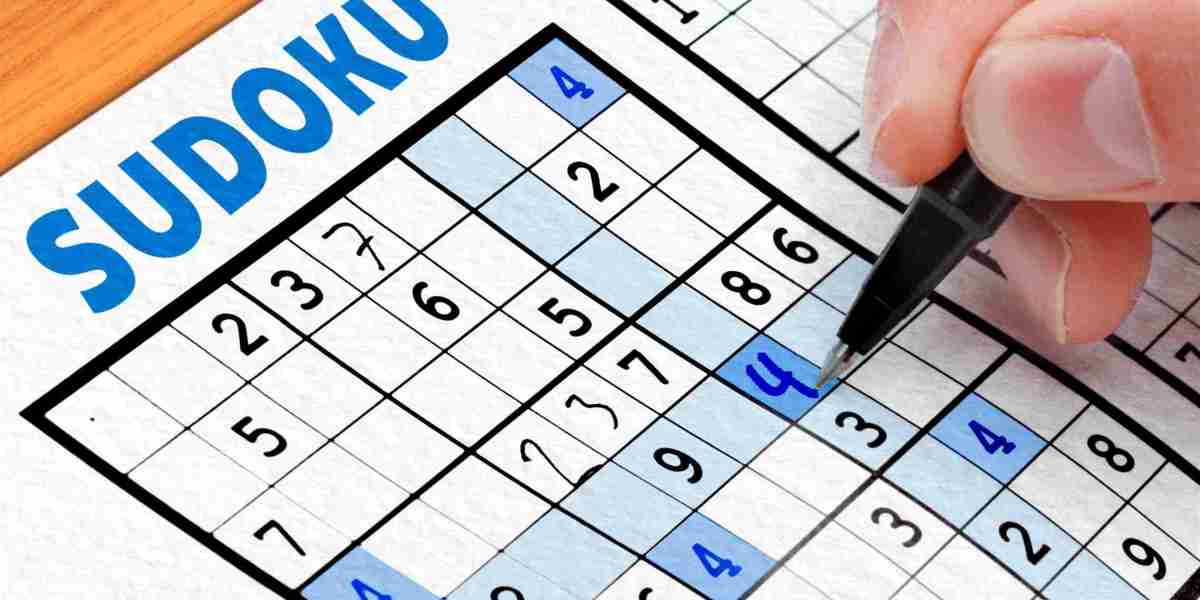This isn’t a guide to becoming a Sudoku master. Oh no. This is a survival story — of brain cramps, false confidence, and the deep existential dread of realizing that the “8” you placed fifteen minutes ago has doomed your entire grid.
My First Encounter with Sudoku (a.k.a. The Humbling)
Once upon a time, I thought I was smart. I really did. Then I met Sudoku.
I remember picking up my first puzzle at a coffee shop because it looked “relaxing.” Big mistake. Ten minutes later, I was sweating, whispering numbers under my breath, and drinking my latte like it was a coping mechanism.
The instructions sounded simple enough: Each row, column, and 3x3 box must contain the numbers 1 through 9 without repetition. Sounds peaceful, right? Spoiler alert — it’s not. It’s a mind-bending logic trap disguised as a children’s activity.
By the time I filled in my first correct “7,” I was emotionally invested. By the time I realized it was in the wrong box, I questioned every life choice that brought me there.
The Stages of Sudoku Grief
After years of experience (and several broken pencils), I’ve come to realize that every Sudoku player goes through the same emotional rollercoaster.
1. Denial
“This looks easy. I can totally finish this before my coffee gets cold.”
No, you can’t. You’ll be here for the next hour, pretending you’re “thinking deeply” while secretly considering throwing the puzzle out the window.
2. Anger
You’ll reach that point where nothing fits. Every number you try feels wrong. You erase so much that your paper starts thinning like your patience. You may mutter, “This puzzle is broken.” (It’s not.)
3. Bargaining
“If I just guess one square, maybe it’ll work out…”
Congratulations, you’ve just made it worse. Now nothing makes sense. Welcome to chaos.
4. Depression
At this stage, you put your head in your hands and question your intelligence. You briefly consider giving up Sudoku forever and taking up something easier — like astrophysics.
5. Acceptance
Finally, after rechecking every row, the pieces start to fall into place. You finish the puzzle. You feel powerful. You consider printing out another one. And thus, the cycle begins again.
My Funniest Sudoku Moments (That Weren’t Funny at the Time)
There was one night I spent two hours working on a “moderate” Sudoku puzzle. I was so sure I had it perfect — everything lined up, every number neatly written. I even took a picture of it like a proud parent.
Then I checked the solution key.
Reader, I was wrong. Not just a little wrong. Every single box was wrong. It looked like a toddler had played Sudoku using their favorite numbers. I had somehow created a new, mathematically impossible grid — a Sudoku alternate universe.
Another time, I solved an entire puzzle in pen (I know, rookie mistake) and realized halfway through that I’d duplicated a “4” in one column. I tried to fix it by scratching out the number so hard that the paper tore. My Sudoku book now has a permanent battle scar — a symbol of both defeat and resilience.
Why I Keep Coming Back to Sudoku Anyway
You’d think all that failure would discourage me, right? Nope. I keep coming back like a moth to a numerical flame.
Because here’s the thing: Sudoku may be maddening, but it’s also incredibly satisfying. When you finally get that perfect placement — when everything clicks and you write the final “9” with confidence — it feels like you’ve just unlocked the secrets of the universe.
Plus, Sudoku is one of the few activities where being stubborn actually helps. The puzzle doesn’t care how many times you mess up. It just sits there quietly, waiting for you to figure it out — or cry trying.
And there’s something comforting about that. In a world full of noise, Sudoku offers a strange kind of peace: no ads, no deadlines, no chaos. Just a grid, a goal, and your own brain trying to prove it’s still functioning after your third cup of coffee.
My “Genius” Strategy (That’s Mostly Luck)
I like to think I’ve developed a system over the years. Spoiler: it’s barely a system.
Step 1: Pretend you know what you’re doing.
Confidence is key. Even if you’re just filling in random numbers while humming “Eye of the Tiger,” it helps set the mood.
Step 2: Find the low-hanging fruit.
Start with the obvious numbers. It builds momentum. You’ll feel brilliant for about five minutes before realizing the real puzzle hasn’t even started.
Step 3: Make tiny notes.
Writing little possible numbers in each square makes you look like a professional. It also gives you something to erase later when you realize they’re all wrong.
Step 4: Take breaks.
Sometimes you need to step away. I’ve solved more Sudoku puzzles after a snack break than during full concentration. It’s like the answers hide until you stop caring.
Step 5: Celebrate your victory.
When you finally solve it, don’t be modest. Raise your arms. Announce it to the room. “I DID IT!” Sure, nobody cares, but it feels amazing anyway.
The Accidental Mindfulness of Sudoku
Here’s the funny part: for all its chaos, Sudoku is surprisingly peaceful. There’s no competition, no rush, no score. Just you and your thoughts (and maybe a few angry sighs).
When I’m playing, my brain enters this strange “focus bubble.” The world disappears. Emails, chores, stress — gone. It’s like meditation, but with more erasing.
Sometimes I even play Sudoku before bed. It quiets my racing thoughts better than any relaxation app. (Unless I get stuck on the last three squares — then I just lie awake thinking about that missing “2.”)



